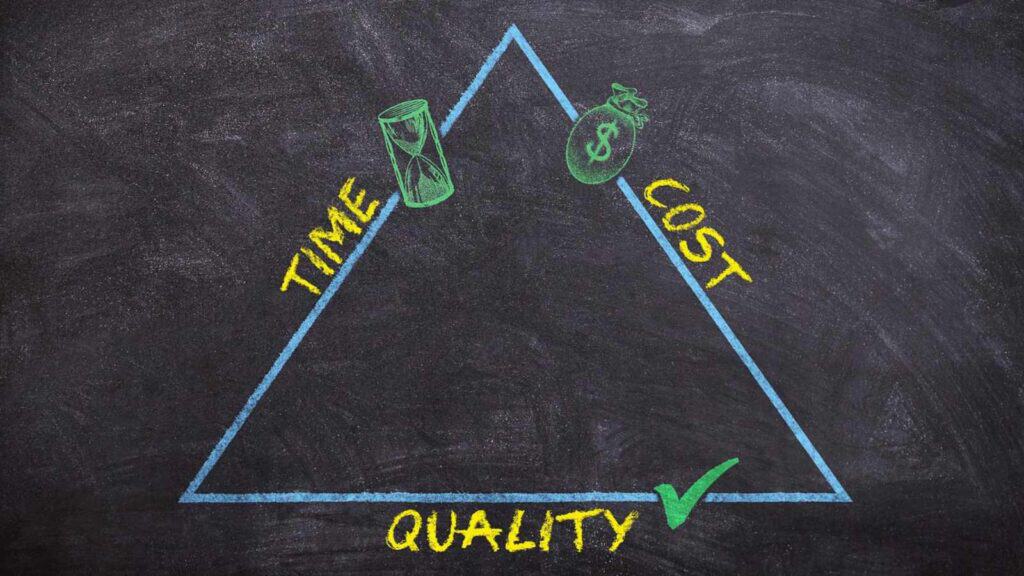6 things to explore in your 30s and 6 to refrain from
I refuse to fault any woman for not having her life perfectly mapped out by 30 or for not “making it” past menopause. The pressure placed on women to achieve these milestones is both unnecessary and cruel.
How is anyone expected to remain calm while waiting for the best, yet also understand that sometimes patience may not be worth it? We are only human, and the stereotype that a woman’s viability somehow declines after 30 is diabolical. What if I never went to college, have no career to develop, and children from a marriage that feels like it’s falling apart? What if it only takes one shift—a single opportunity, decision, or insight—to change my life, but my mind is too fogged to even recognize it?
This season invites introspection: a chance to discern what truly nourishes you from what subtly depletes your spirit. Which relationships, routines, and aspirations uplift you, and which silently burden you? The challenge lies in cultivating the courage to pursue new opportunities, embrace your passions, and prioritize your well-being, while simultaneously developing the wisdom to protect your time, energy, and heart with clear boundaries.
In this guide, we share six things to try, six things to avoid, to help you make the most of your 30s with confidence, clarity, and self-respect.
Building Relationships Beyond Blood Ties as an Immigrant

For many women who migrated in their twenties, midlife often arrives without the familiar anchor of close family nearby. In this new phase, relationships evolve, with colleagues transforming into confidantes, friends met through shared hobbies becoming extended family, and community ties offering both care and a profound sense of belonging.
A study by Aija Lulle, “Middle-aged migrants: Expanding an understanding of lifecourses and linked lives,” shows how women use strong ties (like children or parents) to anchor care responsibilities, while weak ties (old classmates, co-workers, or bosses) open doors to jobs, migration, or even return decisions. Stories of women like Aiva and Raita highlight how networks influence decisions about leaving, staying, or returning home—whether through remittances, rebuilding old marriages, or purchasing land for family homes.
Find Career Growth That Aligns With Your Life Roles
A longitudinal study, Balancing Act: Career and Family During College-Educated Women’s 30s, followed graduates for 16 years and found that most still wanted it all—career, marriage, and motherhood. By their late 30s, two-thirds were employed full-time, 91% had married, and nearly three-quarters were mothers. However, the mix looked different across groups of women, who identified as “Have It All,” “Employed Only,” and “Traditional.”
Women who continued full-time employment reported greater independence, especially when partnered with spouses of lower or equal educational attainment. The category that combined motherhood and work did not necessarily report higher life satisfaction than those who pursued only one of these paths.
Instead, having some form of family role, especially motherhood, tended to boost life satisfaction regardless of employment status. Women with lower maternal anxiety about separation were more likely to stay in full-time work. This highlights the importance of exploring attitudes toward caregiving and career commitment early in the process.
Budgeting for Boomerangs Without Losing Your Balance
It’s midlife, so you’re no longer budgeting just for retirement contributions and weekend getaways. Your spreadsheets these days probably feature a line for that out-of-nested-but-still-not-quite-off-the-hook child. When it comes to children and finances, a little financial assistance can go a long way, according to Monica Kirkpatrick-Johnson’s study “Parental Financial Assistance and Young Adults’ Relationships With Parents and Well-Being.”
With entry-level jobs, college loans, and a housing market that’s often less than welcoming to those entering the workforce, some financial help from parents can pay dividends in adulthood. Parental contributions during this period are also strongly associated with enhanced closeness between parents and their adult children, perhaps by reinforcing the fact that mom (or dad) is still on the “team.”
That said, studies have also shown a connection between parental over-assistance and the “lowered self-esteem” of the young adult recipient, with potential anxiety and stress.
The Art of Being “Locked In”

You’re experimenting, failing, pivoting, and trying again, in your workouts, your nutrition, your career choices, and the types of relationships you permit in your life. The thing is, your 30s are the ultimate litmus test: you’re still young enough to dabble with reckless abandon, but old enough to start seeing the boundaries.
Every decision you make is a lesson in what works for your body, mind, and heart. Instant gratification is an enemy in this season.
Holistic Health and S*xual Well-Being in Perimenopause
Perimenopause is a pivotal life phase where hormones, energy levels, and s*xual functioning begin to shift. Women entering this stage are no longer in their 20s of hormonal predictability, but neither are they fully in menopause—this is a transitional window where self-awareness and body literacy are key. A RACGP study on S*x and Perimenopause highlights that many women experience changes in lib!do, vag!nal dryness, aro*sal, and org@smic response. They are signals from your body inviting you to tune in, explore, and adapt.
Holistic health during this stage is about understanding how your mind, body, and emotions interact. Exercise, nutrition, stress management, and adequate sleep all play a role in influencing s*xual desire and overall well-being. Equally important is cultivating self-knowledge, which involves noticing what types of intimacy feel good, understanding your hormonal patterns, and experimenting with solutions such as lubr!cants, pacing, or open communication with a partner.
Ancestry Genetic Tracing
Tracing your DNA for health can help you identify potential health risks that may be inherited from your family. Knowing your genetic predispositions can empower you to take proactive steps towards prevention or make lifestyle changes based on your ancestry. Genetic tracing can also help you discover living relatives you may not have known about, such as long-lost siblings, distant cousins, or even more distant family members.
This information can help you piece together your family tree and strengthen connections with your extended family. If you’re curious about your heritage, genetic tracing can even help you connect your lineage to historical figures or famous ancestors. Overall, ancestry genetic tracing is a powerful tool that combines science and storytelling to help you learn more about your family’s past and how it may shape your life today.
Careless Risk-Taking in Your 30s
Even though fertility is likely still at its height in your 30s, hasty or careless decisions—regarding permanent sterilization, risky reproductive behavior, or substance abuse, for example—can lead to choices that are out of sync with your future goals. “It’s the Choices You Make That Get You There”: Decision-Making Pathways of Childfree Women, written by Braelin Settle and Krista Brumley, is a study about how women make the decision to be childfree.
Settle and Brumley discovered that women’s experiences are neither homogenous nor linear. Some women make an active choice early on to reject motherhood. Other women drift—expecting that they will have children and then later actively work to be childfree. Another smaller group of women is resigned to their childfree status later in life and experiences more structural constraints.
The Need to Control Uncertainties
Coming into middle adulthood with an open mind will serve you well in navigating the physical, occupational, and familial transitions and issues that may arise at this stage. Research has shown that women’s decisions to retire are significantly influenced by their actual health conditions and their subjective perceptions of health. Moreover, staying on in employment “while still healthy” can also imply “continued attention to physical, psychological and family factors.”
Health, as noted by Isabelle Marchand and Diane-Gabrielle Tremblay, is a fragile balance that constantly shifts over time. Preparing for uncertainty means acknowledging that this balance may change in ways beyond one’s control. Women will retire in order to concentrate on care work. Others will delay their retirement so that they can continue to have a purpose in life and maintain their professional status.
The relationships between freedom and constraint, and between autonomy and social expectations, call for continuous mental balancing and anticipation.
Black Tax

An article, “Black Women and the Black Tax,” by Jasmine Hill (Gender Policy Report, September 21, 2022) delves into the multifaceted financial and emotional responsibilities that Black women often bear as a result of systemic inequities.
“Are women more generous than men? A meta-analysis,” Bilén, Dreber, and Johannesson conducted a meta-analysis of gender differences in giving (dictator games) across many experiments. The data indicate that women, on average, give a little more to anonymous recipients, and especially to charities.
Black women may overrepresent the giving of financial support to family or community members as both a product of socialized generosity and structural necessity. Don’t let it happen if you don’t want it to happen.
Underserving Relationships
Undervalued relationships sap our energy and divert our focus away from the investments that truly matter—those that are meaningful, personal, professional, and emotional. When a partner or friend doesn’t respect our boundaries or support our independence, it can actually hinder our ability to be self-reliant and limit our potential for happiness.
Midlife women understand this, and they may find themselves ready to reassess what connections warrant their time and which do not, and who is worthy and who isn’t. Midlife women understand the importance of quality over quantity, and when they release unserving relationships, they create space for connections that truly align with their goals and priorities.
Read More: 7 Reasons Women Lose Close Friendships as They Age – The Queen Zone
Unhealthy Comparison
Understanding the concept of duality in life provides insight into human behavior, especially in complex social contexts. It explains why individuals may act impulsively in some situations and reflect deeply in others, as a study by Strack and Deutsch explores.
Cultivating empathy, both toward oneself and others, engages the reflective system, allowing a woman to recognize that everyone’s path is unique and shaped by circumstances often invisible from the outside.
Time Mismanagement
Time can feel like a leash, giving freedom to move only if you pace yourself perfectly—or risk getting “caught.” Balancing work, family, and personal passions leaves hours slipping away on low-priority tasks. Mismanaging time fuels stress, guilt, and a constant sense of falling behind. At this stage of life, responsibilities are higher, making intentional use of each hour critical.
Recognizing distractions, overcommitment, or scattered focus is the first step toward reclaiming control. Prioritizing tasks, setting boundaries, and aligning activities with personal goals transforms the “leash” into a tool for autonomy. In doing so, midlife women can convert time from a source of pressure into meaningful, self-directed moments that support growth, relationships, and well-being.
Why investing for retirement is so important for women (and how to do it)

Why investing for retirement is so important for women (and how to do it)
Retirement planning can be challenging, especially for women who face unique obstacles such as the wage gap, caregiving responsibilities, and a longer life expectancy. It’s essential for women to educate themselves on financial literacy and overcome the investing gap to achieve a comfortable and secure retirement. So, let’s talk about why investing for retirement is important for women and how to start on this journey towards financial freedom.






